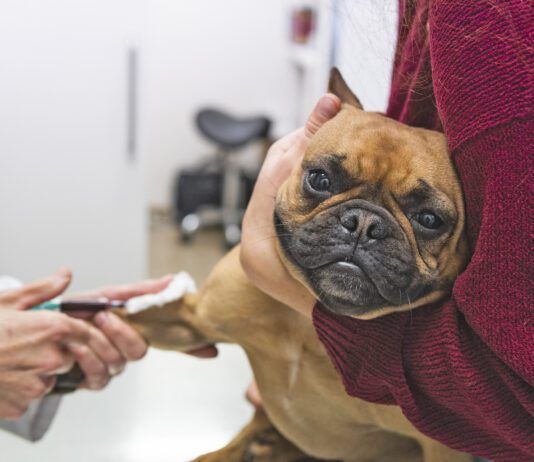Hypothermia in Dogs
Although hypothermia is usually a cold weather problem. Swimming in cold water, or wet and chill due to rainy weather can also cause hypothermia in dogs.
A Guide to Dog Allergy Medications
There are several manifestations of allergies in dogs, including atopic and flea allergy dermatitis, allergic rhinitis and bronchitis, hives, and insect bite hypersensitivity. Symptoms...
Puppy Strangles: Symptoms, Diagnosis and Treatment
Also known as juvenile cellulitis the puppy strangles is a rare condition whose cause is not known. Most dogs are able to make a complete recovery.
Dogs Can Get Bartonella, Too
In both people and dogs, bartonellosis often shows up with cardiac signs while it is asymptomatic in cats.
Treatment and Signs of Parasites in Dogs
Parasites in dogs affect both the dogs internal organs like the heart and digestive system, their skin, and orifices like the nose and ears.
Identifying Fungal Infections in Dogs
There are many kinds of fungal infections in dogs, including systemic fungal infections, fungal skin infections, and fungal ear infections.
Babesiosis in Dogs
Babesiosis in dogs is a tickborne disease that attacks red blood cells over time gradually causing anemia. The disease is seen worldwide, and the infection is carried for a lifetime.
Why Your Dog is Licking Their Back Near the Tail
If your dog keeps licking their back near the tail it indicates discomfort due to allergies, fleas, hot spots or other issue to investigate.
Leptospirosis in Dogs
Dogs with leptospirosis will have a decreased appetite, fever, and low energy level. Prevention through the use of the leptospirosis vaccine is important to ensure your dogs health.
Rocky Mountain Spotted Fever in Dogs
Rocky Mountain spotted fever can cause blood vessel wall damage leading to small hemorrhages in a dog's eyes and gums. It can also cause organ damage.
Can Dogs Get Pink Eye?
Technically yes, dogs can get pinkeye from humans, but it’s rare. Most of the causes of conjunctivitis are not contagious even within the same species.
Why Is My Dog Losing Weight?
Environmental issues can cause a dog to stop eating and be easily fixed. Dental or medical issues can also cause weight loss and need professional assistance to resolve.


















